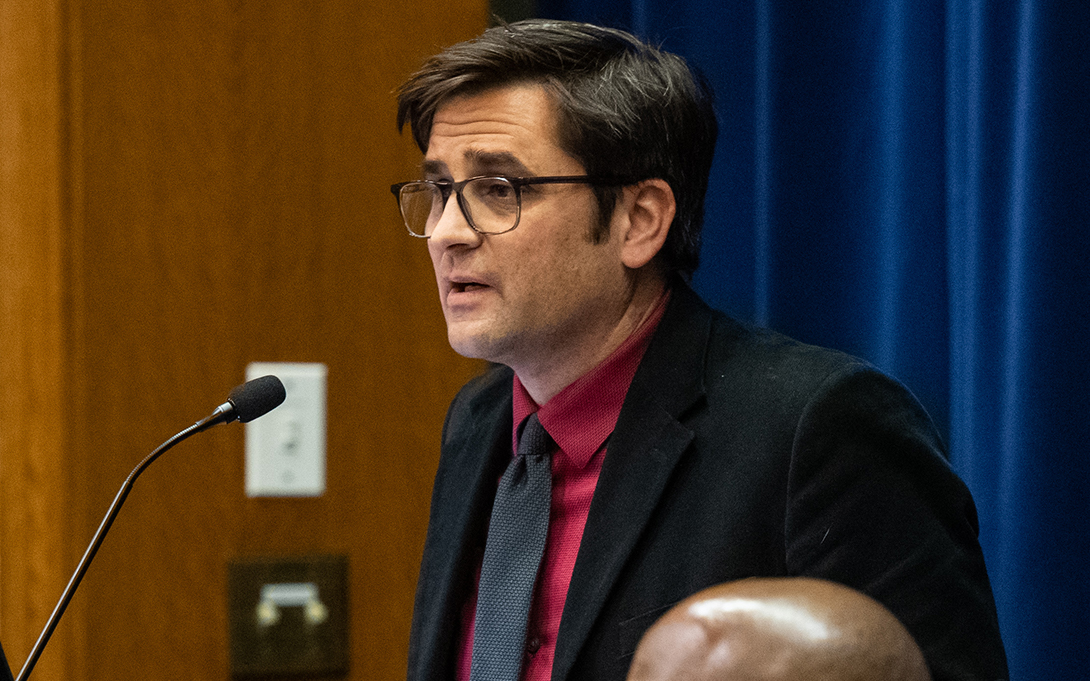
Ford School professor David Thacher’s new study, “The Learning Model of Use-of-Force Reviews,” examines how common use-of-force incident reviews can be used as a learning tool for policing. Use of force criteria and practice have been a hotly debated topic in the current controversies about policing.
Thacher notes that “nearly all police departments have written use-of-force policies” and that reviews of use-of-force incidents are most often done to “monitor whether officers comply with those policies.” This punishment-centered approach has not been very effective in reducing the use of force in policing. He argues that in many cases officers do not violate any rule or law. With a policing environment that involves complex judgement calls and idiosyncratic local context, and increasingly stringent oversight, compliance reviews are limited in their ability to improve the policing system or create organizational change. The response to use-of-force should not just be punishment-oriented compliance reviews but nonpunitive efforts to learn how organizational changes might prevent such uses of force in the future.
Using the Portland Police Bureau (PPB) as a case study, Thacher sheds light on an emerging, but not well understood learning-oriented alternative approach, which has become a leading idea at the frontiers of police reform. PPB implements routine use-of-force incident reviews for nonpunitive learning in addition to compliance reviews, to better understand systemic challenges, learn from mistakes, and offer potential organizational changes. He notes that while PPB is not an “unqualified example of what use-of-force reviews should look like,” PPB’s “efforts to refine and deploy its oversight over the past 15 years illustrate the key elements, virtues, and challenges associated with experimentalist monitoring.”
Thacher uncovered several important lessons and challenges as PPB transformed its routine incident review process as a tool for learning, which can be replicated by other agencies:
- PPB had to reshape the content and scope of their review, and expanded the focus beyond the officer’s final decision to use force, considering prior actions (the officer’s and the rest of the organization’s) that set the stage for it.
- PPB had to create routine mechanisms for organizational change so that recommendations may be implemented. This included establishing new procedures, lines of authority, and external oversight to implement organizational changes.
- Organizational development can occur even without the implementation of new rules or systemic reforms. The reviews can “draw attention to previously unrecognized problems” and can be “an important input into problem-oriented policing.”
- Even when recommendations are offered, they often remain provisional solutions that may be further explored or represent actionable options for officers and police managers.
- Lessons or recommendations drawn from reviews are “intensely local” and can be a “mechanism for monitoring the evolving local context to identify priorities for scarce organizational attention.”
Organizational changes, Thacher says, “are unnatural” for most policing agencies. “A routine review of use-of-force incidents helps adapt practices to the idiosyncratic and constantly changing local context. Policing in this country is radically decentralized, and when we review police reform simply as importing generic ‘best practice’ we can easily do more harm than good. A routinized approach to learning constantly asks how better to adapt the agency's practices to the nature of the local environment and the problems police are called on to handle locally.”
The study concludes, “Portland’s experience provides evidence that with sustained effort and external pressure, it is feasible to use routine incident review to make police agencies more reflective, transparent, and restrained in the way their officers use force.”
The paper, published in the August 2020 issue of Law & Social Inquiry, can be read here.
